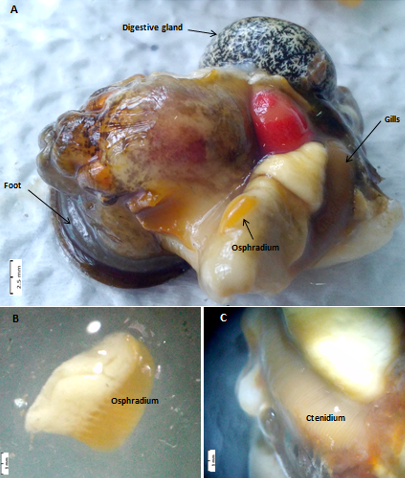Wild sunflower, an invasive weed, can serve as a natural pesticide against the golden apple snail
15 Feb 2024

This article focuses on investigating the molluscicidal properties of an invasive weed, Tithonia diversifolia (wild sunflower) against Pomacea canaliculata (golden kuhol) which has been considered a pest in many parts of the country. The secondary metabolites were extracted from the leaves of robustly growing wild sunflower using standard methods. The phytochemical screening revealed the presence of alkaloids, saponins, phenolics and tannins, and flavonoids. However, only alkaloid and saponin were successfully fractionated. The tannins and polyphenols were not successfully separated hence were treated as a single fraction. The median lethal concentration (LC 50 ) or the concentration of the leaf extract that was capable of killing half of the population of the snails subjected to test was first determined prior to the actual experiment. The distilled water and Niclosamide (Sure KillTM) were used as negative and positive controls, respectively. The molluscicidal assay showed that alkaloids and saponins from the leaf extracts were able to disrupt the cells in the foot, the ctenidium or gills (a respiratory organ), the osphradium (a chemosensory organ), and the digestive gland that functions for enzymatic secretion and absorption of digested materials of the snail. The study proved that the metabolites present in the leaves of wild sunflower can be used as a potential source of natural molluscicide to control the population of golden kuhol.
Pomacea canaliculata (commonly known in the Philippines as golden kuhol) has been a persistent invasive pest in the Philippines for several decades now since its introduction in 1980s. Other than the damage it has caused to the rice production, it has also displaced our native kuhol, the Pila conica. The use of commercial molluscicides to control the golden kuhol not only poses health hazards to the farmers who are directly exposed to the agrichemical, but can also pollute the environment. Using plant-derived, naturally occurring compounds with molluscicidal activities is therefore a better alternative. Tithonia diversifolia, commonly known as wild sunflower is an invasive weed that is widely distributed in the tropics, particularly in Cordillera Region. Therefore, using this invasive plant material in controlling the population of another invasive golden apple snails is doubly advantageous for the local community.
Authors: Karen A. Ballada and Zenaida G. Baoanan (Department of Biology, College of Science, University of the Philippines Baguio)
Read the full article: https://link.springer.com/article/10.1007/s10668-023-03969-5
